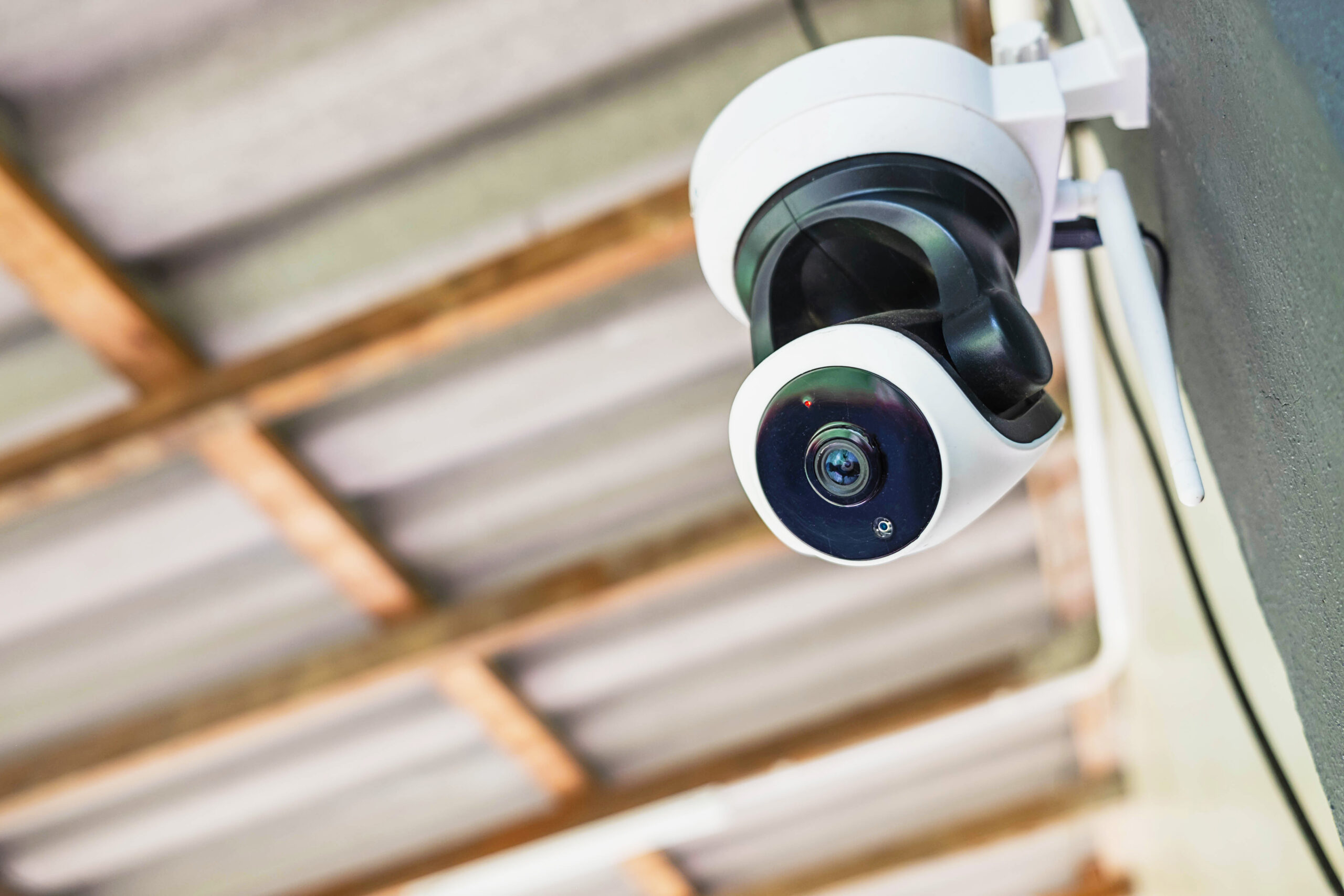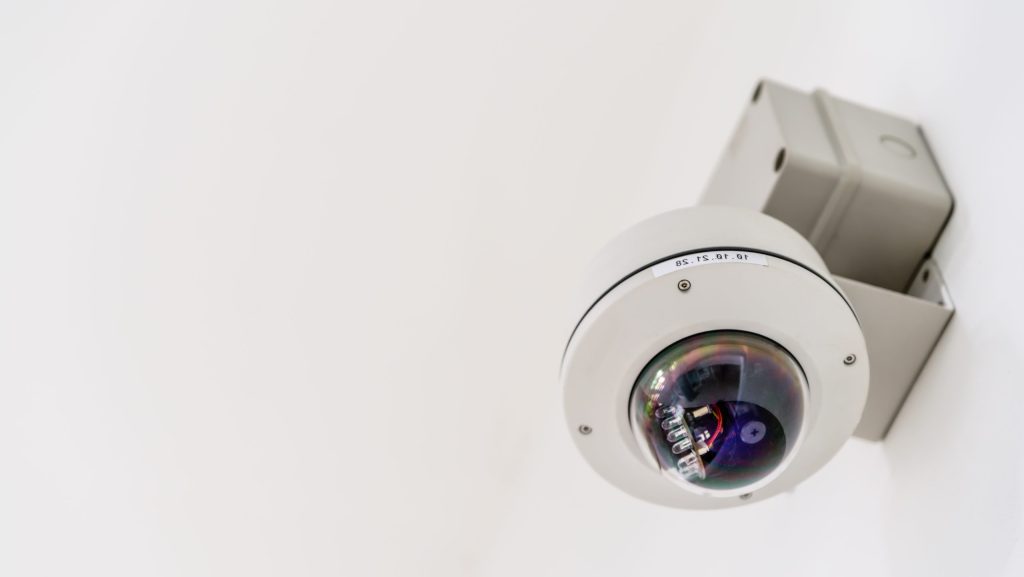Security Camera Resolution: Get Crystal-Clear Footage

Looking for a security camera? The resolution is key. It decides how clear the footage will be. Higher resolution equals more detail. This helps make out faces and license plates.
Do you know that 4K cameras show over 8 million pixels? [1]That’s ultra-sharp. But not everyone needs 4K. Keep reading to find the resolution that fits your needs.
Key Takeaway
- Higher resolution cameras provide clearer images.
- 1080p resolution is good for most home and business needs.
- 4K cameras are great for detailed monitoring but need more storage space.
Understanding Security Camera Resolution
When it comes to keeping your home secure, resolution matters. At Shielded Residence, we prioritize clarity in our camera systems, ensuring every detail is captured when it counts most. What exactly resolution mean?
Resolution refers to how clear the camera’s picture is. It’s about how much detail the camera can capture. The more detail, the easier it is to see what’s happening in the video.
Resolution is measured in pixels. Pixels are tiny dots that make up the image. A higher resolution camera has more pixels. This means it can show more fine details in the picture. For example, a 1080p camera has about 2 million pixels. But a 4K camera has a whopping 8 million pixels! That’s a lot more detail.
With a higher resolution 4K camera, you can see things like people’s faces or license plate numbers much more clearly. Everything looks sharper and less blurry. This extra clarity is really helpful if you need to identify someone or read small text. It gives a more accurate picture of what’s going on.
Understanding resolution is key for security. Clear footage makes it easier to see if something bad is happening. If someone is breaking into a home or business, the police can use good video to help catch the criminals. That’s why for safety’s sake, resolution matters!
So when picking out a security camera, look for one with plenty of pixels. The higher resolution sensor will capture crisper footage and finer details. This gives better images that are essential for keeping homes or businesses secure. With the right camera, you can keep watch over what matters most in crystal clear quality.
Key Resolutions in Security Cameras
Picking the perfect security camera takes some research. There are different types of resolutions to choose from. The resolution tells you how sharp and detailed the camera’s images will be.
Here are some common security camera resolutions:
720p HD – This resolution has 1280 x 720 pixels. It’s decent for basic indoor uses. But it may not catch small details clearly.
1080p Full HD – With 1920 x 1080 pixels, 1080p is very popular. It balances good image quality and file size. It works well for homes and small businesses.
1440p 2K – This resolution has 2560 x 1440 pixels. It captures even more detail than 1080p, so it’s great for monitoring larger areas.
4K 2160p – 4K resolution is 3840 x 2160 pixels. It gives incredibly sharp images. 4K excels at capturing every little detail. It’s ideal for high-security needs.
The more pixels in the resolution, the crisper the video will look. 4K cameras really stand out. Their super-high resolution is perfect for places like parking lots or building entrances. They provide images where you can zoom in and see things clearly.
It’s also key to match resolution to the setting. Like outdoor cameras may need higher resolution to handle tough lighting situations. Each resolution has advantages for specific needs. Doing research helps pick the right camera and resolution for the job.
The bottom line – look at the resolution to understand the camera’s image clarity. Choose wisely to get crisp footage that captures the details you need. With the right resolution, you can keep close watch over your property in picture-perfect quality.
Choosing the Right Resolution
Picking the perfect security camera takes some thinking ahead. What will the camera be used for? That helps decide which resolution is best.
Here are some questions to ask yourself:
- What’s the purpose? If you just want to watch your front door area, a basic 1080p camera should do the trick. But if you need to see farther away and identify details, go for a sharper 4K camera.
- How much storage and internet speed do you have? Higher resolution video takes up more hard drive space and needs faster internet. [2]Make sure you have room for all those large files! 4K cameras in particular can eat up storage.
- What’s the lighting like? Outdoor cameras often struggle in low light at night. A higher resolution helps them capture clearer dark images. This really matters for security, since many bad things happen after the sun goes down.
- How large is the area you want to watch? For big, wide open spaces, higher resolution lets you see smaller details from farther away. For smaller zones, you may not need such a high-def camera.
Think about your specific needs. Find the right balance between resolution, storage, lighting, and the camera’s purpose. At Shielded Residence, we help you navigate these decisions by offering expert advice and customizable options to match your security goals.
Analog vs. IP Camera Resolution

There are two main types of security cameras – analog and IP (internet protocol). They measure resolution a bit differently.
Analog cameras use TV lines instead of pixels. The best analog resolution is D1 at 704 x 480 lines. These cameras are usually more affordable. However, they can’t match the image quality and flexibility of IP cameras.
IP cameras go up to 4K resolution with millions of pixels. This allows for incredibly clear and detailed images. IP cameras also have cool features like remote viewing on phones and motion sensing alerts.
So which is better? It depends on your needs. For simple surveillance of smaller indoor spaces, an analog camera may work alright. But for large areas or lots of detail, IP is the way to go.
Analog cameras have limits on resolution and features. Their images may get fuzzy when zoomed. IP cameras shine with super sharp images and high-tech tools.
The bottom line is think about the camera’s purpose. For basic needs, analog could be sufficient. But for robust security and crystal clear images, especially outdoors or in big spaces, IP cameras are the top choice. Their high resolution and smart features take surveillance to the next level!
FAQ
What’s the difference between 4K IP cameras and 4K coax systems for security?
4K IP cameras connect through your network and typically offer better video quality than 4K coax systems. While both deliver ultra HD resolution, IP cameras usually provide more flexibility for remote viewing on your mobile device. Coax systems use traditional wiring but can be simpler to install and maintain.
How does night vision affect video quality in 1080p HD and 4K security cameras?
Night vision capabilities vary between 1080p cameras and 4K security options. The image sensor and total pixels play crucial roles in how well your camera performs in day and night conditions. Higher resolutions like 4K generally capture more detail in low light, though the actual quality depends on sensor size and focal length.
What should I consider about file sizes and cloud storage when choosing between 2K and 4K cameras?
Video footage from 4K security cameras creates larger file sizes than 2K security footage. This affects both cloud storage needs and hard drives capacity requirements. Consider how long you need to store real time video and whether your internet connection can handle uploading high quality footage.
How do viewing angle and field of view impact camera placement for a large area like a parking lot?
The camera’s field of view and viewing angle determine how many feet wide it can monitor. Pan tilt features can expand coverage, but proper placement is crucial. For areas like a parking lot, consider whether optical zoom capabilities might be more useful than a fixed focal length.
What’s the real difference between 1080p vs 720p cameras for good security coverage?
While 720p cameras offer basic hd resolution, 1080p cameras provide noticeably better video quality. The frame rates and total pixels affect how smooth and clear your video footage appears. For most home or small business security needs, 1080p high definition strikes a good balance between quality and storage requirements.
How does resolution ip camera quality compare between 4mp vs 5mp models?
The key difference lies in their total pixels and overall image clarity. While both deliver high security monitoring capabilities, 5MP cameras capture more detail than 4MP models. This can be especially important when you need to zoom in on video footage while maintaining video quality.
What factors affect high quality recording in solar powered security cameras?
Solar powered cameras need to balance power consumption with features like real time monitoring and frame rates. The video quality often depends on available sunlight and how the camera manages power usage. Many systems offer adjustable settings to optimize battery life while maintaining good security coverage.
What should I look for in CCTV cameras beyond just ultra high resolution?
Consider the whole camera system, including the alarm system integration and whether it works with your preferred cloud storage solution. The image sensor quality, sensor size, and focal length all affect performance. Look for cameras that offer reliable day and night recording rather than focusing solely on resolution numbers.
How do IP security cameras differ from traditional CCTV cameras?
IP security cameras can send video samples directly over your network and typically offer more features than traditional CCTV cameras. They often provide easier access through a mobile device and better integration with modern alarm system setups. However, they may require more bandwidth and technical setup than standard CCTV options.
Should I wait for Black Friday deals to buy the best security cameras?
While cameras offer great discounts during Black Friday, focus first on finding the right specifications for your needs. Consider factors like resolution, field of view, and night vision capabilities. The best camera isn’t always the most expensive or the one on the deepest discount.
The Bottom Line
At Shielded Residence, we believe that choosing the right resolution matters. It determines how sharp and detailed the images are. 1080p is a solid choice for most uses. But for critical monitoring needs, higher resolutions like 1440p or 4K provide even more clarity.
Our comprehensive security solutions are designed to give you peace of mind, with tailored options and expert guidance to ensure your home stays safe and secure.
References
- https://reolink.com/blog/security-camera-resolution-comparison-examples/
- https://www.eufy.com/blogs/security-camera/security-camera-resolution